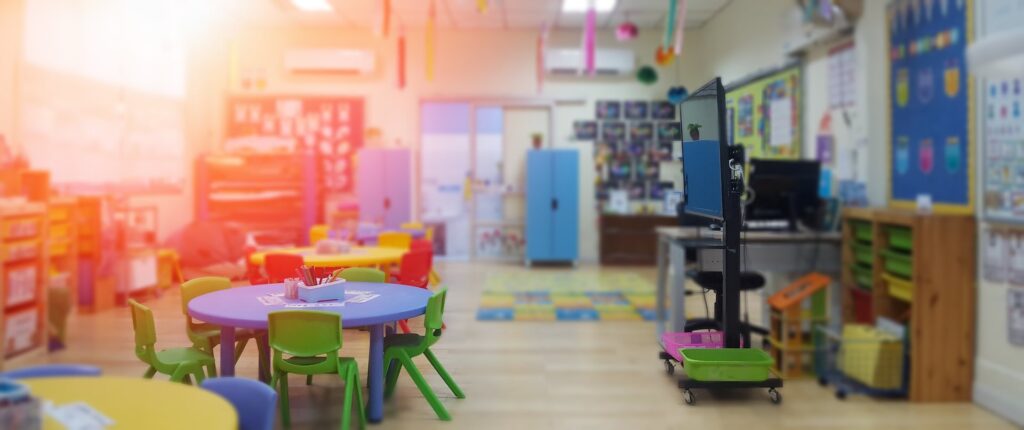No matter what business you’re in, everyone depends on someone who depends on childcare. A new survey from Probe Research and the Manitoba Child Care Association (MCCA) makes this mutual reliance clearer than ever, revealing agreement among Manitoba business leaders that, despite recent strides made in the province, more needs to be done to strengthen this critical sector that impacts more than just the families who use it.
According to the findings, there is a strong consensus among businesses about the importance of childcare to their sector, with more than eight in 10 agreeing a strong childcare system helps businesses. Aside from improved employee retention, reduced absenteeism, and the creation of a dependable workforce, a strong early learning and childcare system drives the local economy and better educational outcomes for future generations, explains Jodie Kehl, executive director of the MCCA.
Then it’s no surprise that 78 per cent of Manitoba business owners and managers indicate that a lack of childcare is a very or somewhat serious problem in the province. This is up from 76 per cent in 2016, when MCCA conducted a similar survey.
Business leaders are also becoming more aware of the day-to-day operational impacts of childcare shortages. Fully one-quarter, up from 15 per cent in 2016, agree that absenteeism due to childcare is a serious issue. One in five think employees coming back to work late (or not at all) from parental leave due to lack of childcare is a problem, with the same number (up from about one in 10 in 2016) agreeing that employees who are distracted or less productive due to childcare issues is a concern.
These growing pressures on the workplace have paralleled a broader shift in how childcare is viewed across Canada. The pandemic played a role in changing the public perception of childcare, which moved from a social service to an economic necessity. In response, in 2021, the Trudeau government committed to investing $30 billion over five years in Canada’s early learning and childcare system. The funding from Ottawa helped Manitoba move towards $10/day childcare, including spaces for school-aged children, an extension that was added in December 2024 and is unique to the province.

However, as childcare has become more affordable, waitlists have become longer. In some cases, parents are waiting 17 months for their preferred spot. “Families can see it and they want it, but they can’t access it fully,” says Kehl. Anecdotally, MCCA members report waitlists of 500 to 800 names. “Some kids just likely age out before getting a spot.”
In May 2025, the Manitoba government, in partnership with the federal government, announced a substantial increase in wages for early childhood educators and a two per cent increase to base operating grants for licensed childcare facilities as part of a broader strategy to expand the childcare system and enhance the quality of care. In their 2025 budget, the province specifically committed to creating 4,600 childcare spaces over the next two years.
But staffing remains a key concern, with Kehl estimating the province is short 900 to 1,000 early childhood educators. The hope is that higher wages will help attract and retain qualified professionals to fill new positions.
Still, despite acknowledgment of the system’s importance, business leaders appear more hesitant to use financial incentives to fund or create childcare spaces. Only 50 per cent agree they would pay more taxes to fund a universal childcare system, while one in 10 (down from one quarter in 2016) express definite interest in taking advantage of government incentives to create child care spaces for employees.
“I think businesses understand it’s not as simple as just opening a place for employees to bring their children. In Manitoba, we are highly regulated with staff and curriculum requirements. It’s uncharted territory. So, we’re not surprised by this response,” she states, adding businesses can still help create a stronger early learning and childcare system by engaging in policy discussions and supporting workplace flexibility that eases the burden on working parents.
The MCCA is also calling on the business community to support efforts to raise quality across the sector. “We are so privileged to be in a place where there is room to improve staff skills and knowledge with subsidized training opportunities. We want early childhood educators to be able to pick a quality centre that aligns with their values and interests, rather than just looking at pay. Parents have the right to access systems with the quality that gives them peace of mind when they go to work,” she says. “We understand the system wouldn’t be built in the five years of post-pandemic funding. It’s not a sign of failure. We’re taking the time to build a better system that has roots and will be entrenched for the betterment of the community for years to come.” ■
Study Highlights
The study between Probe Research and the Manitoba Child Care Association revealed more than just business attitudes towards the sector. The survey also ranked feelings from the workforce, families, and Manitobans at large. Some of the highlights include:
- 37 per cent of families have turned down a job because of problems finding childcare.
- 52 per cent (up nine per cent since 2016) have delayed returning to work because of problems finding childcare.
- 17 per cent have quit a job because of issues with childcare.
- 63 per cent of families have turned down extra hours at work because of a lack of childcare.
- 70 per cent of parents agree that $10/day childcare is working.
- 95 per cent of licensed childcare centres are non-profit, making the sector more akin to the public school system.
- 81 per cent of early childhood educators are satisfied with their work, helping to boost employee retention.
- 54 per cent have seen a noticeable increase in their wages (even before the wage grid announcement in May).








